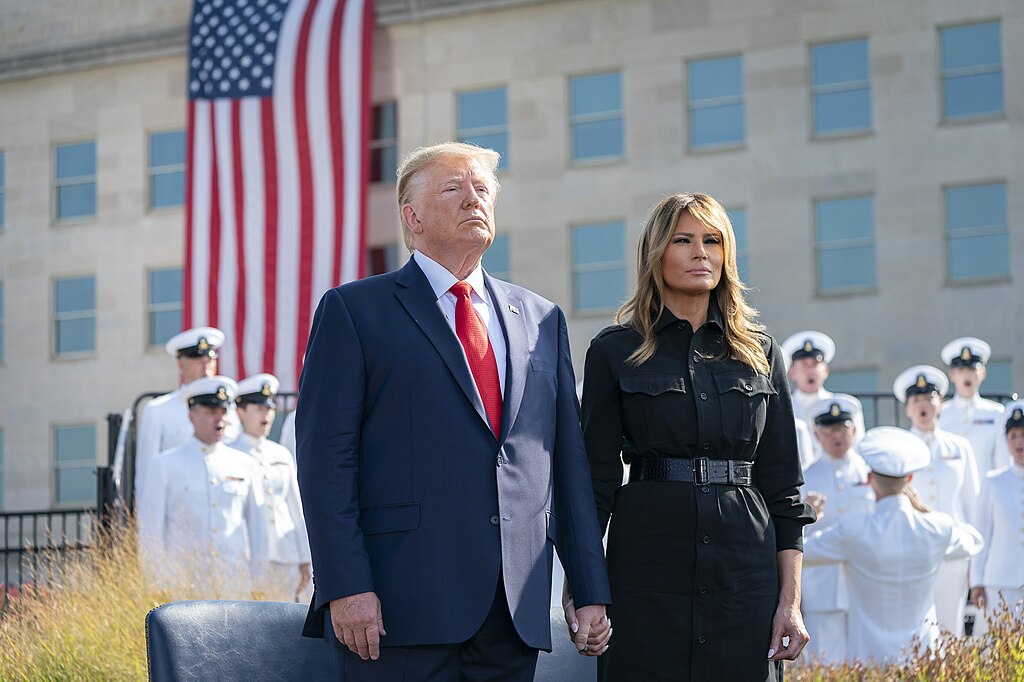Donald Trump’s presidency brought many controversies, but one area where his supporters continue to credit him is the U.S. economy. Advocates argue that Trump’s policies created an economic boom that led to significant benefits for Americans. While detractors focus on his divisive rhetoric, many still contend that his economic vision was a boon to the nation’s financial health. Here are seven reasons why Trump is seen as good for the U.S. economy.
1. Tax Cuts for Individuals and Corporations
One of the most significant legislative achievements during Trump’s time in office was the Tax Cuts and Jobs Act of 2017. The law slashed corporate tax rates from 35% to 21% and provided tax cuts for individuals. Supporters argue that this move spurred corporate investment and led to higher wages and job creation.
2. Record Low Unemployment Rates
Before the COVID-19 pandemic hit, unemployment rates in the U.S. fell to their lowest levels in over 50 years under Trump’s administration. The black, Hispanic, and female unemployment rates also reached historic lows, giving Trump and his economic team bragging rights for their policies fostering job growth.
3. Deregulation Boosting Business Confidence
Trump implemented an aggressive rollback of regulations, especially in sectors like energy, finance, and manufacturing. This deregulation allowed businesses more freedom to operate, which Trump’s supporters say improved business confidence and contributed to stronger economic performance across various industries.
4. Stock Market Boom
During Trump’s tenure, the stock market reached record highs, benefiting millions of Americans with retirement savings and investments. The Dow Jones Industrial Average surpassed 29,000 points for the first time in history, and investors reaped the rewards of a thriving financial market.
5. Strong GDP Growth
GDP growth accelerated during Trump’s presidency, hitting 2.9% in 2018—the fastest rate since 2005. His administration argued that policies like tax cuts and deregulation provided the necessary foundation for this growth. Proponents see this as evidence that Trump’s economic plan worked, benefiting businesses and individuals alike.
6. Trade Deals and Tariffs
Trump’s approach to trade, especially with China, was one of the most controversial aspects of his presidency. The U.S.-China trade war, fueled by tariffs on hundreds of billions of dollars’ worth of goods, was designed to protect American industries. Trump’s defenders argue that these aggressive tactics forced China to negotiate fairer trade deals and brought manufacturing back to the U.S.
7. Repatriation of U.S. Corporations’ Overseas Profits
Under Trump’s tax reform, U.S. corporations were incentivized to bring home profits held overseas. By lowering the tax rates on repatriated funds, the administration sought to inject more capital into the American economy, which proponents say resulted in increased domestic investments and job creation.
However, critics argue that some of Trump’s policies, particularly the tax cuts, disproportionately favored the wealthy and increased the federal deficit. The long-term consequences of these decisions are still debated among economists, with some claiming they may lead to fiscal challenges down the line.
Despite the controversies surrounding Trump, his impact on the economy remains a focal point for his supporters. They continue to praise his approach, arguing that he laid the groundwork for economic prosperity. As the U.S. navigates its post-pandemic recovery, the debate over Trump’s economic legacy persists. His supporters maintain that his policies brought tangible benefits, while critics argue over the sustainability and fairness of those benefits.



 UK Accepts U.S. Request to Use British Bases for Defensive Strikes on Iranian Missiles
UK Accepts U.S. Request to Use British Bases for Defensive Strikes on Iranian Missiles  Does international law still matter? The strike on the girls’ school in Iran shows why we need it
Does international law still matter? The strike on the girls’ school in Iran shows why we need it  Macron Urges Emergency UN Security Council Meeting as US-Israel Strikes on Iran Escalate Middle East Tensions
Macron Urges Emergency UN Security Council Meeting as US-Israel Strikes on Iran Escalate Middle East Tensions  AI is already creeping into election campaigns. NZ’s rules aren’t ready
AI is already creeping into election campaigns. NZ’s rules aren’t ready  Israel Strikes Hezbollah Targets in Lebanon After Missile and Drone Attacks
Israel Strikes Hezbollah Targets in Lebanon After Missile and Drone Attacks  Argentina Tax Reform 2026: President Javier Milei Pushes Lower Taxes and Structural Changes
Argentina Tax Reform 2026: President Javier Milei Pushes Lower Taxes and Structural Changes  Zelenskiy Urges Change in Iran After U.S. and Israeli Strikes, Cites Drone Support for Russia
Zelenskiy Urges Change in Iran After U.S. and Israeli Strikes, Cites Drone Support for Russia  Pentagon Leaders Monitor U.S. Iran Operation from Mar-a-Lago
Pentagon Leaders Monitor U.S. Iran Operation from Mar-a-Lago  Netanyahu Suggests Iran’s Supreme Leader Khamenei May Have Been Killed in Israeli-U.S. Strikes
Netanyahu Suggests Iran’s Supreme Leader Khamenei May Have Been Killed in Israeli-U.S. Strikes  Suspected Drone Strike Hits RAF Akrotiri Base in Cyprus, Causing Limited Damage
Suspected Drone Strike Hits RAF Akrotiri Base in Cyprus, Causing Limited Damage  Trump to Address Nation as U.S. Launches Strikes in Iran, Axios Reports
Trump to Address Nation as U.S. Launches Strikes in Iran, Axios Reports  Australia Rules Out Military Involvement in Iran Conflict as Middle East Tensions Escalate
Australia Rules Out Military Involvement in Iran Conflict as Middle East Tensions Escalate  Iran Supreme Leader Ayatollah Ali Khamenei Killed in Israeli, U.S. Strikes: Reuters
Iran Supreme Leader Ayatollah Ali Khamenei Killed in Israeli, U.S. Strikes: Reuters  Trump Announces U.S. Strikes on Iran Navy as Conflict Escalates
Trump Announces U.S. Strikes on Iran Navy as Conflict Escalates  Why did Iran bomb Dubai? A Middle East expert explains the regional alliances at play
Why did Iran bomb Dubai? A Middle East expert explains the regional alliances at play  U.S. Lawmakers Question Trump’s Iran Strategy After Joint U.S.-Israeli Strikes
U.S. Lawmakers Question Trump’s Iran Strategy After Joint U.S.-Israeli Strikes  Israel Declares State of Emergency as Iran Launches Missile Attacks
Israel Declares State of Emergency as Iran Launches Missile Attacks 































